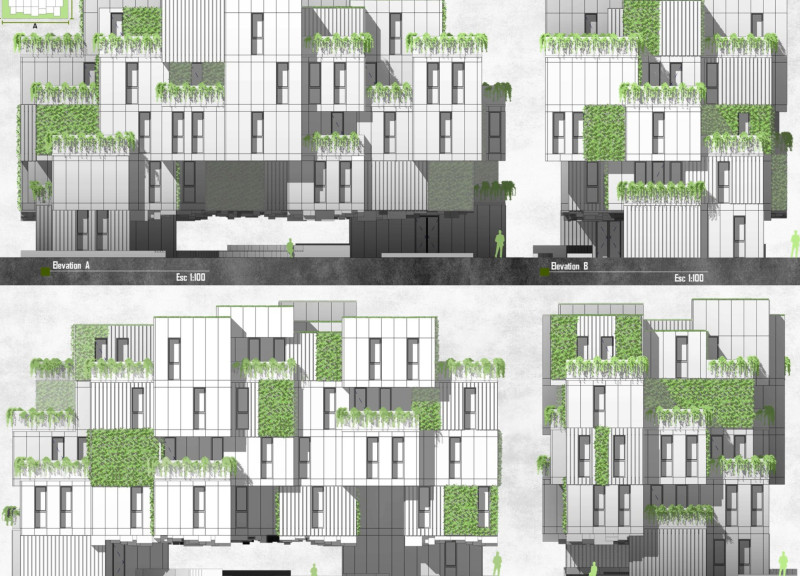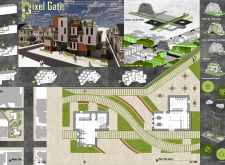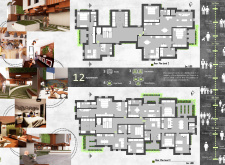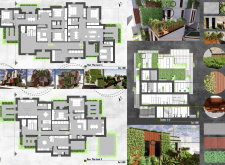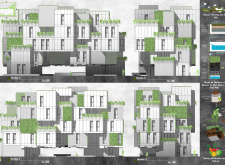5 key facts about this project
Pixel Gate is a housing development located in the Mission District of San Francisco, specifically on 24th Street between Capp and Lilac Streets. The design follows a modular approach that emphasizes sustainability and community connection. The goal is to create spaces that foster social interaction while allowing residents to enjoy their personal privacy.
Architectural Approach
The layout balances public and private areas, ensuring easy movement within the development. By combining urban gardens and communal spaces with residential units, the design encourages interaction among residents. This setup creates a lively atmosphere where people can engage with each other while also having their personal retreat.
Housing Configurations
The project features a range of housing types, with business and community spaces situated on Level 1. Levels 2 to 5 hold various residential options, including studios and apartments with up to three rooms. This flexible arrangement accommodates different lifestyles, catering to singles, couples, families, and those seeking shared living environments.
Sustainability Features
A major focus is on sustainability through the integration of urban gardens. These spaces not only improve the visual appeal of the development but also allow residents the chance to grow their own food. The project also includes a rainwater harvesting system that collects water from green roofs, providing irrigation for the gardens. This approach promotes responsible water usage and enhances the community's connection to nature.
Design Detailing
Elevation and sectional views reveal the vertical arrangements and spatial dynamics of the development. The careful placement of greenery alongside residential units contributes to a lively environment that is both functional and attractive. Each element has been thoughtfully considered, creating a living space that reflects the energy of urban life while nurturing a sense of community among its residents.


